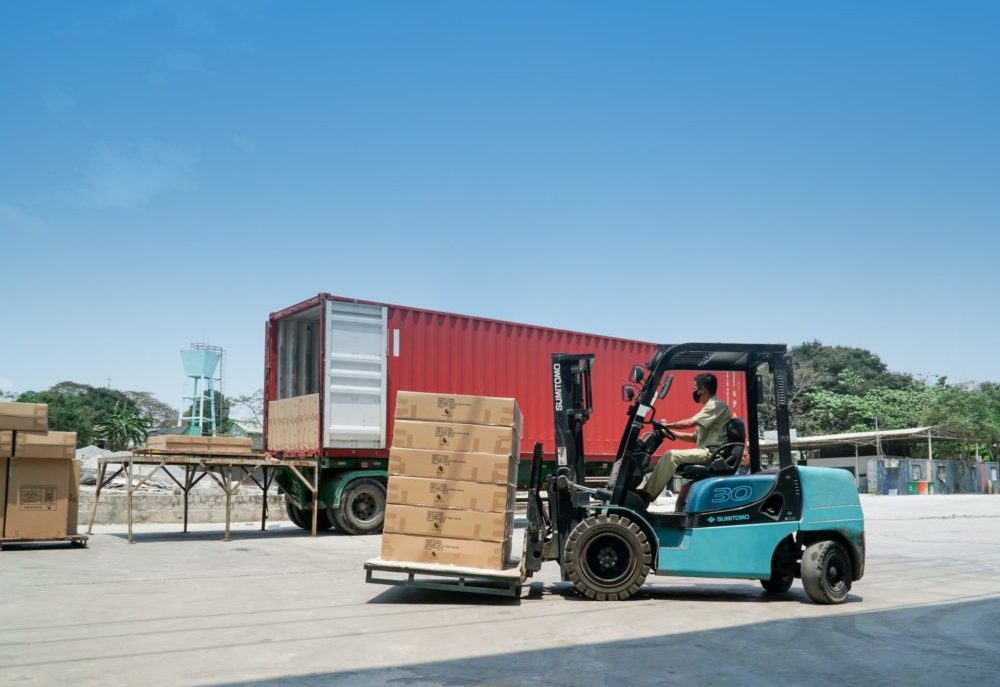Freight has become a major target for digitalization, with paper-based practices and telephone calls still characterizing how most transactions in the industry are handled.
Among the many startups leading the charge is Brazil’s GoFlux, which is hoping to breathe some digital life into the way the country transports its bountiful agricultural commodities.
“What we are trying to do is build a full network of cargo freight,” Rodrigo Gonçalves, CEO and founder of goFlux, tells AFN. “To do so, we are connecting large agriculture companies to transport companies.”
The São Paulo-based startup has just raised $1.2 million in a funding round co-led by local agrifoodtech VC firm SP Ventures and ADM Venture Capital, a VC fund affiliated with financial services provider Banco Rendimento.
GoFlux is a freight platform that’s designed to bust through some of the bottlenecks in Brazilian road transport. It allows shippers and carriers to handle quotes, negotiations, contracting, documentation, and fleet management digitally.
This includes a real-time monitoring service to ensure that services are executed correctly, according to Gonçalves. The benefit of this feature is being able to convert a carrier’s receivables into payment on the same day that the freight moves, improving stakeholder cash flow.
GoFlux offers prepayment credit in conjunction with Banco Rendimento. By the end of this year, it’s also aiming to have structured its own FIDC (‘fundo de investimento em direitos creditórios,’ a financial instrument common in the Brazilian market which packages accounts receivables together for sale to investors) in order to diversify sources of financing for its users.
The startup has a goal of transacting $500 million in freight in 2021, which would capture roughly 1.3% of the Brazilian market. It would like to transact twice that figure in 2022.
That would make for a long-haul journey from where GoFlux started in 2018. Gonçalves has maintained a bootstrap mentality for most of that time, and only brought investors to the table when he felt like they aligned with the company’s long-term vision.
The two that have backed this latest round “fit perfectly,” he says.
“SP Ventures is very well connected in the agriculture sector, which is our main market. ADM Venture Capital is a Brazilian fund which touches on the other aspect of our business, which is financial products.”
GoFlux will use the new funding to enhance its financial offerings, in addition to expanding its market reach.
“What we are aiming to do in the future is to build a network of shippers and holders to operate just like the grain companies and the Chicago Board of Trade [a US futures and options exchange]. Companies can use tools and contracts to protect the freight, the freight price in the fields, and manage their positions for trades,” he explains.
Other startups hoping to digitalize agrifood shipping include New York-based Loadsmart, which closed a $90 million Series C round last year, and California’s Hwy Haul, which raised $10 million in Series A funding last month [disclosure: AgFunder, which is AFN‘s parent company, has invested in Hwy Haul.] Both are focusing on the transportation of fresh produce in an effort to cut out intermediary stages which often eat into growers’ margins.
At the global level, a number of major grain players including ADM (no relation to ADM Venture Capital), Bunge, and Cargill came together to create a new platform called Covantis in 2020 designed to digitalize global grain trading. Covantis selected Brazil as its first port of call given the country’s status as a major agricultural goods exporter.
Gonçalves believes GoFlux is differentiated enough to stand out from the field, and he argues that it offers a slightly more robust value proposition compared to competitors.
“What we’re trying to do in the future is a bit different in terms of the freight exchange. In Brazil, the competitors that we have are pretty much models with mobile apps that can hire a truck driver,” he says.
“We are connecting [ag] companies with transport companies. It generates a larger network effect. When you hire a transport company, it can hire several hundred independent truck drivers.”





